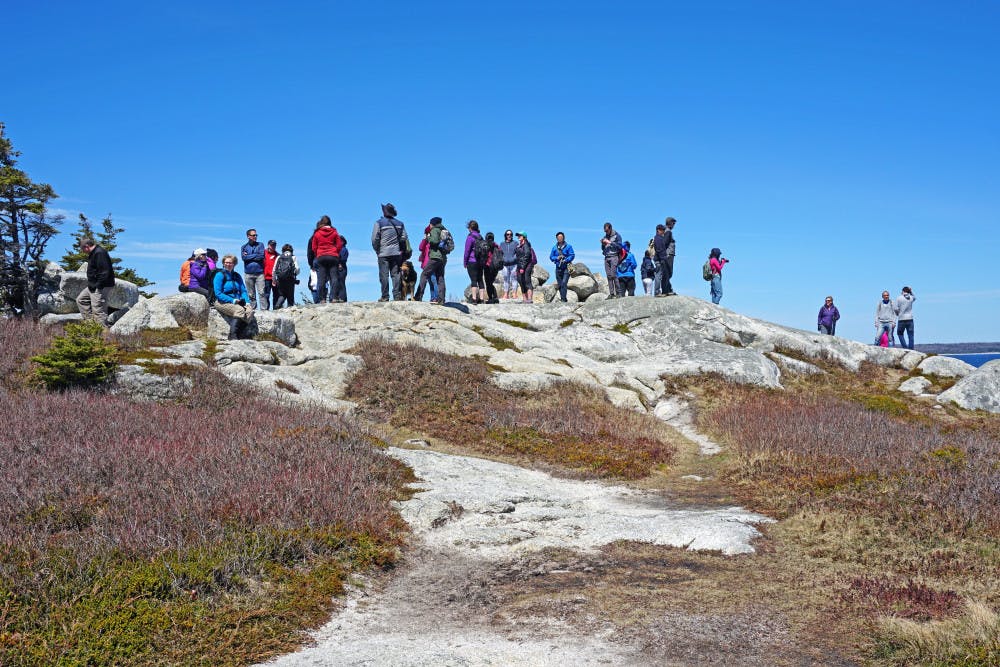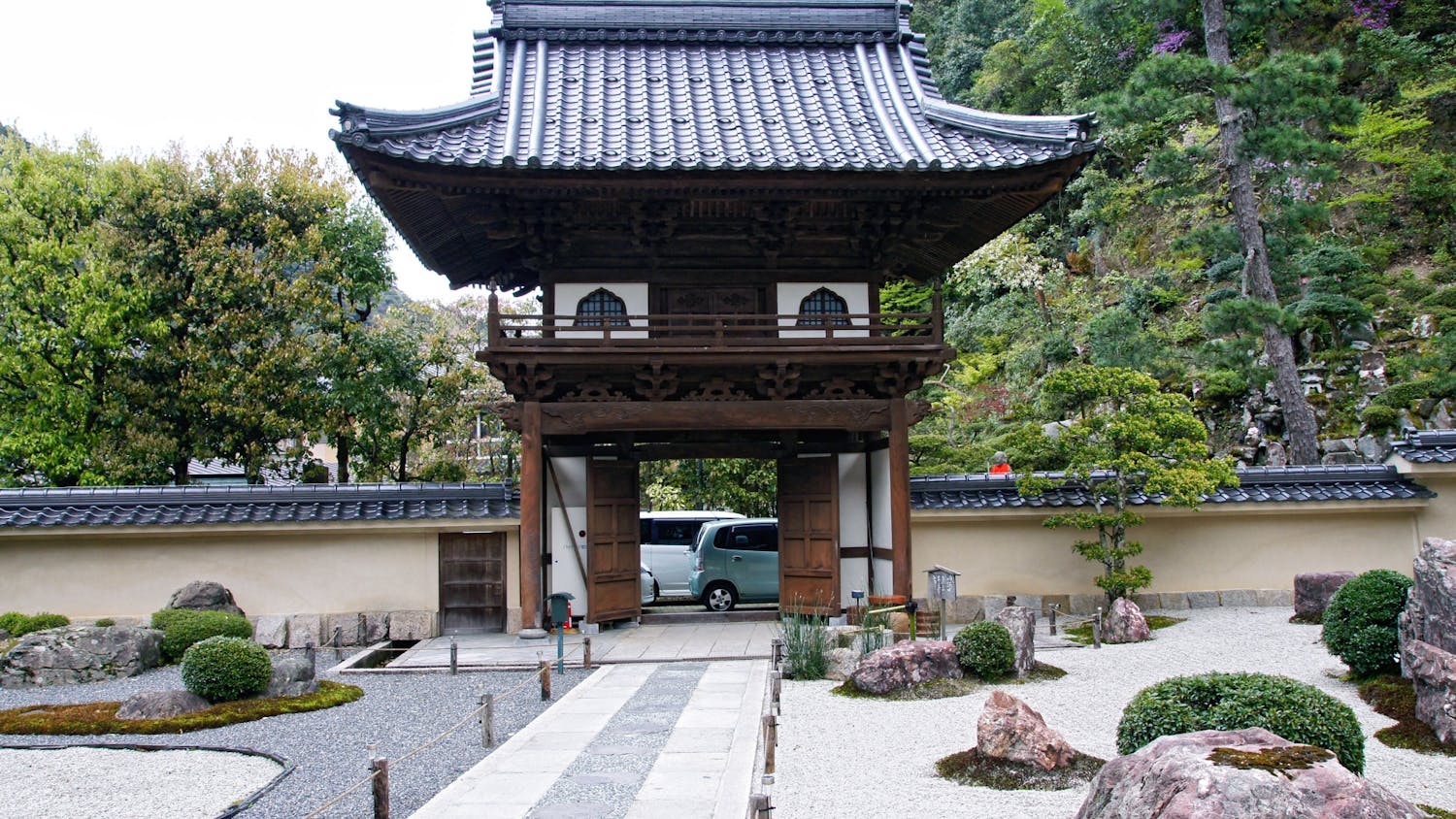Amid era of social distancing, nature’s connection to helping lower stress, improving mental health grows stronger

By Belle Wright
The Associated Students of Western Washington University Outdoor Center has organized a “Mindfulness Hike!” set to take place at 4:00 p.m. March 17 at McConnely creek. Students had to RSVP through the Western Involvement Network by March 16 to attend.
Though spots for the event were quickly filled, the hike encourages students who are attending to connect with nature and other hikers as a means of de-stressing and practicing mindfulness.
Attention Restoration Theory, created by Stephen and Rachel Kaplan, suggests that spending time outside improves mental health issues, exhaustion and concentration. According to the theory, in order to see these positive differences in mental health, the outdoor environment must provide four distinct properties: extent, being away, soft fascination and compatibility.
Ben Crandall, excursions co-coordinator at the ASWWU Outdoor Center, said people should take a further look at ART to observe the rejuvenating effects nature can have on the mind.
Extent means someone is able to feel immersed in the outdoor environment. Being away references being able to seek escape through the environment from everyday activities.
Soft fascination means the environment can capture the attention of someone effortlessly. Compatibility explains the desire of an individual to be exposed to, and appreciate, the environment at hand.
Crandall said the ASWWU Outdoor Center aims to positively serve the holistic wellness of Western’s student body.
“I think the restorative power of nature really has potential to rejuvenate students and break down barriers to get people outside in different capacities,” Crandall said. “So what we’re really trying to focus on with this mindfulness hike, and other outdoor activities we’ve hosted, is making them [introductory] level so anyone can do it and reap the benefits.”
Crandall said it is the goal of Western and the outdoor center to make events like these as inclusive as possible for students.
“We are trying to equalize long-standing barriers that have been in outdoor spaces and see how we as a program and university can change those, and I think bringing people of all different backgrounds out into nature in a safe way is an important piece of that,” said Crandall.
Radovan Woods, a fourth-year biology major at Western, said since most people have been social distancing, the mindfulness hike is an ideal opportunity to form community.
“Having an event like this gives people an excuse to get out of the house and be in nature, since it can be really intimidating to just go out to the woods by yourself one day,” Woods said.
Woods said the hike can be helpful for new first-years who haven’t been on campus yet, or people who haven’t been outside because of the COVID-19 pandemic.
Woods said he finds solace in a local nature reserve where he is able to escape all the hustle and bustle of the city and daily life.
“There's this huge pond and there's almost never anyone there, and there's always tons of birds and mushrooms and little, little critters running around.”
Woods said being somewhere in nature where you can address your thoughts can be an ideal distraction.
“It's really nice to step away from all of the noise, cars and buildings and just be somewhere where you’re really forced to focus on whatever you're thinking or stressing about,” Woods said. “I think it's surprisingly distracting for the small amount of stimuli it provides.”
Adelei Wolf, a former field guide of two years and current administrator at wilderness therapy organization New Vision Wilderness, said she has seen, firsthand, the mental health benefits nature can provide for people.
“I think a lot about this one time that we had a young adult student who enrolled from taking time out of college,” Wolf said. “He was at university and struggling to deal with his depressive thoughts to the point where it got dangerous to his health.”
She said when the man came to New Vision Wilderness, he was processing a lot and making big decisions for himself. He felt like the weight of the world was on his shoulders. As a result, he forgot how to have fun and enjoy the little things in life.
“So we did this trip to the Oregon coast, and we asked all the people in the group to build a sculpture out of raw materials that they found on the beach, and he had made this huge elaborate driftwood log tower sculpture that had kelp hanging down for decoration, and little rocks balancing on top of each other all throughout,” Wolf said.
Wolf said when he came back, he was beaming with excitement and said, “It feels so good to do something that doesn’t really mean anything, something that means nothing except to have fun.”
Wolf said the best moments in nature are when people who lost joy find it again.
“This is a resource that's available to everyone,” Wolf said. “If you choose to go outside, nature will always be here to help you.”





